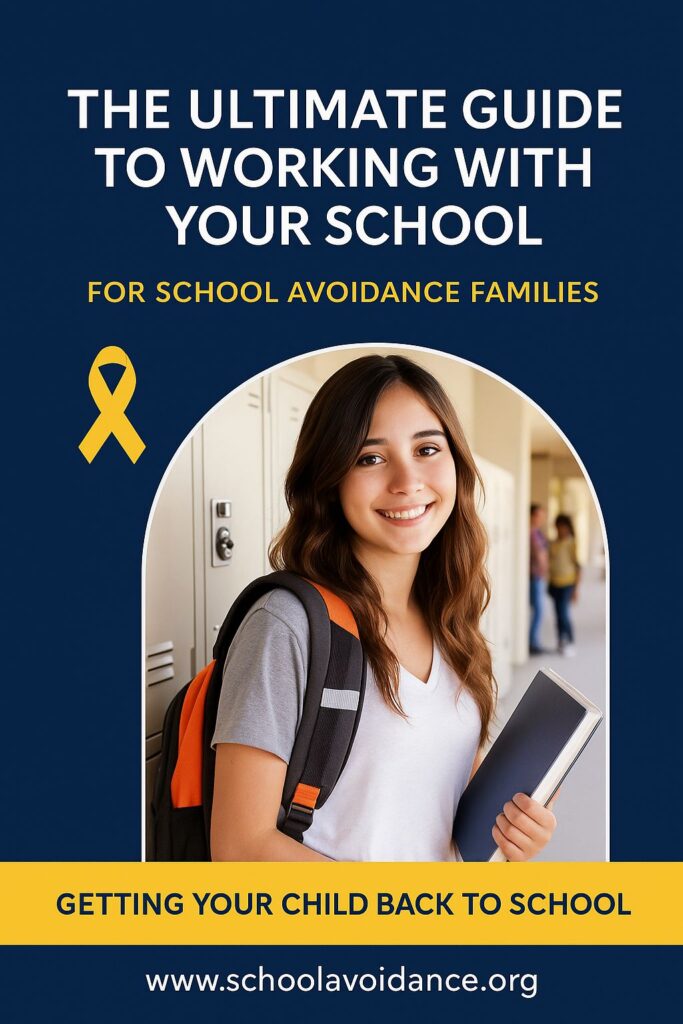Listen to their emails and calls of concerns. If you see any kind of pattern or increase in hearing from them, it’s time to learn more to see how you may help. As noted above, home may be the only place where changes in behavior are taking place.

Kids who have school avoidance don’t want to feel this way. Many kids themselves can’t explain what is driving their school avoidance. They want help, hope, and support and shouldn’t be treated with punitive measures.
This 2-minute video gives you a perspective of a young student who is struggling with school refusal:
Source: Hogent School Netherlands
It’s significant to note that dealing with school avoidance completely disrupts families.
To help families, help their kids; your level of understanding and empathy will go a long way.
Families share that it is exhausting, overwhelming, heartbreaking, scary, and isolating. It negatively impacts everyone in the household.
It’s extremely stressful wondering every night before you go to bed if your child will go to school in the morning.
The morning of school is another level of uncertainty, concern for your child’s health, and sadness for their state of distress,
School avoidance can be complicated
Because school avoidance doesn’t have one designated course of treatment, sometimes it isn’t addressed correctly. The delay of proper interventions, causes the problem to grow and become more entrenched.
There are not enough mental health providers in our country who are experienced in evidence-based treatments for school avoidance such as exposure therapy. And even though many providers “do CBT”, not all have the proper training and/or utilize best practices for Cognitive Behavioral Therapy.
This is of course an added stressor that both the child and parents feel getting worse as the school avoidance progresses. (focus on the return to school, not the work. If there isn’t a slow progression of academic demands, the student may revert back to their school avoidance and a stronger case of it)
Kids with school avoidance may also be avoiding their friends and are at risk to lose their social and community connections.
The same is true for the parents. Because school avoidance is misunderstood and can be hard to explain; many parents don’t tell their friends and family about the distress they are living through.
Friends, Family, and School Staff who don’t understand can make parents feel blamed and ashamed. Parents with school-avoidant kids want their kids back in school. They don’t want their kids stuck in their bedrooms.
Parents know their school-avoidant kids are missing school. The daunting threats only cause more sadness and reminders that their child is in crisis.
Time answering repeated emails and phone calls if parents are expressing a problem with their child (address quickly, little problems will grow into big ones)
Unfortunately only a small percentage of school professionals, therapists, educational advocates and policy makers understand school avoidance best practices. So, you must become the expert to ensure your child is getting:
The time passing slowly without progress is the worst feeling. It wouldn’t have taken five years of suffering and uncertainty if I had this expert guidance during my son’s school avoidance. We would have saved $29,000 in lawyer fees and $69,000 for private schools.
